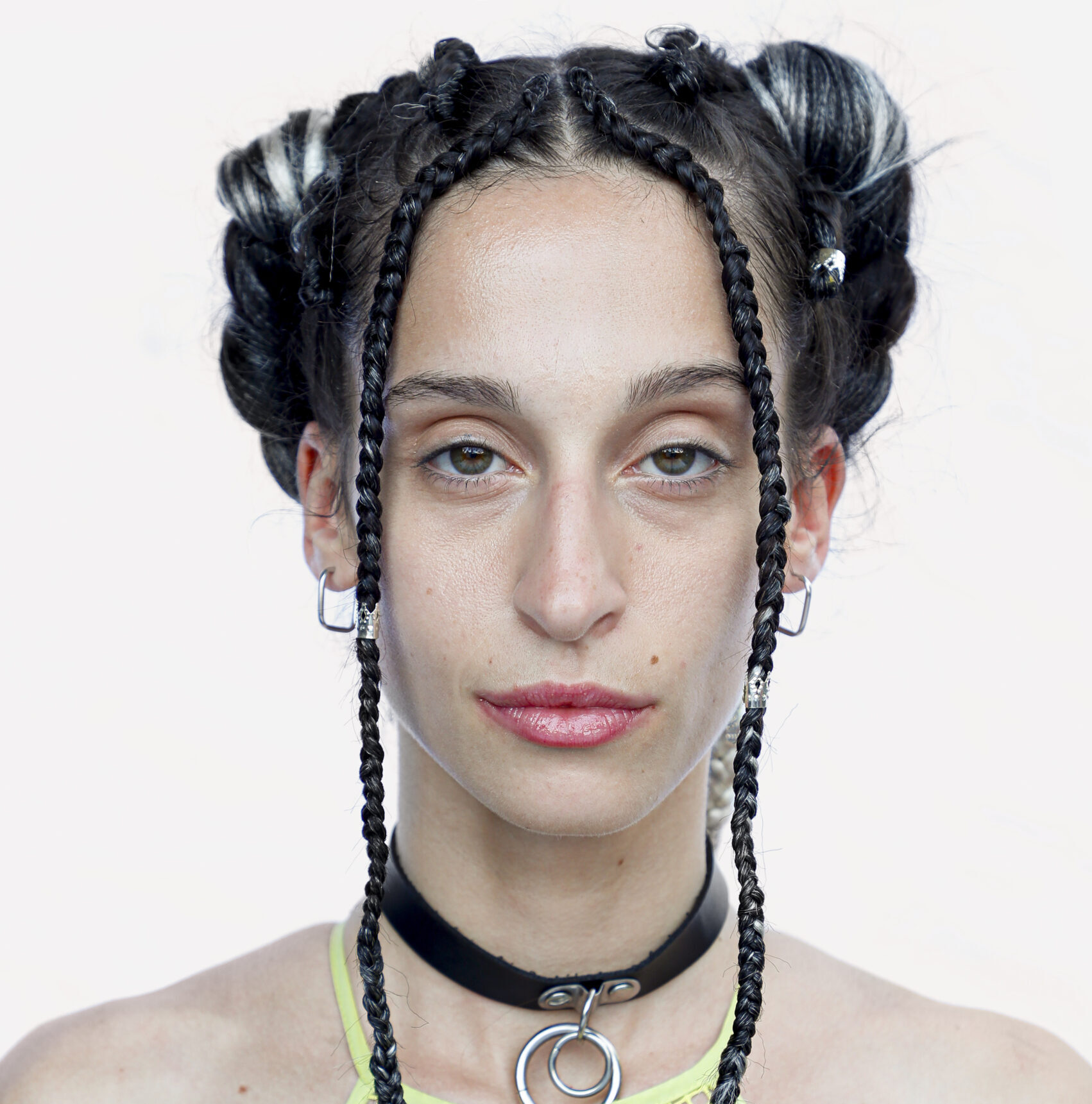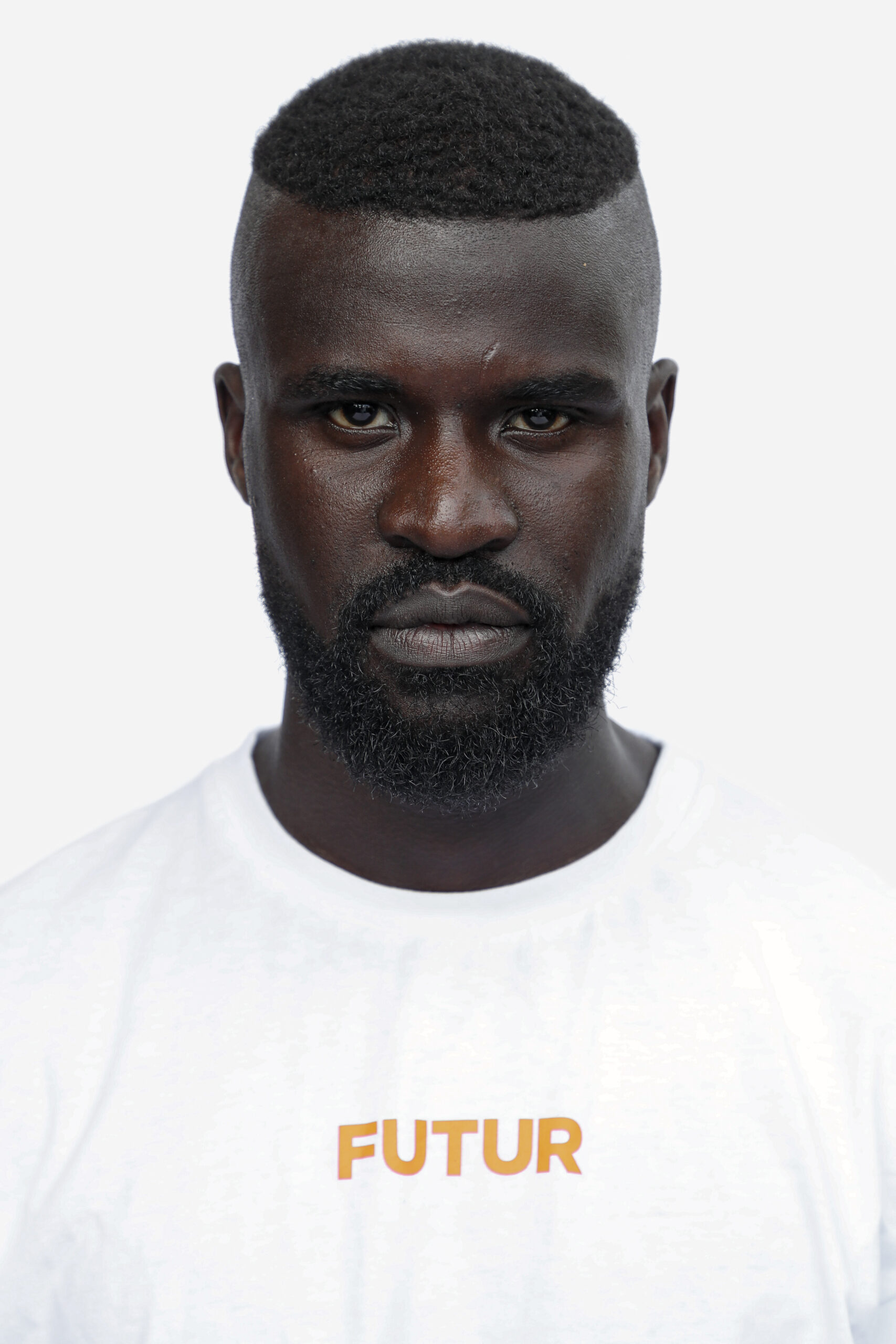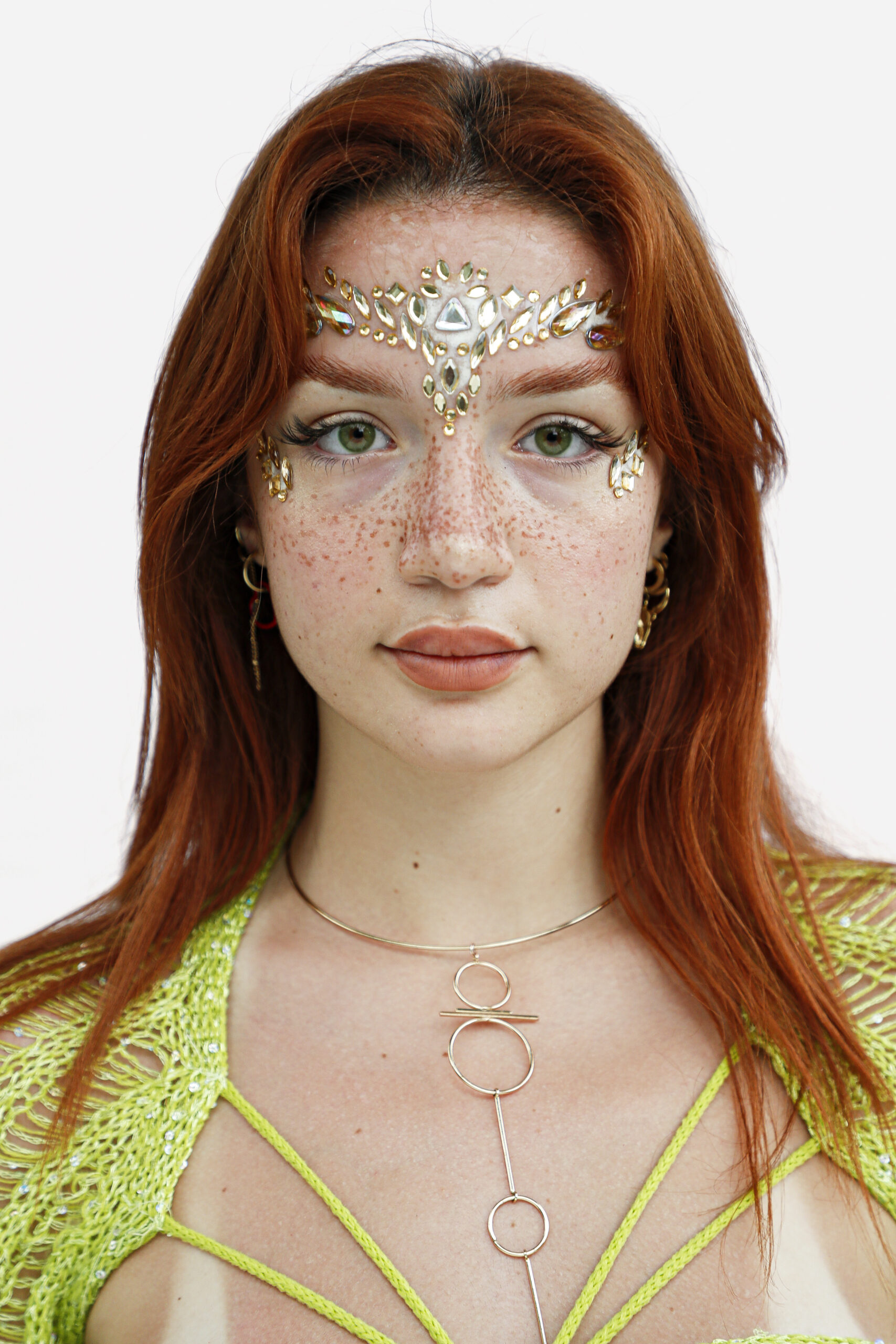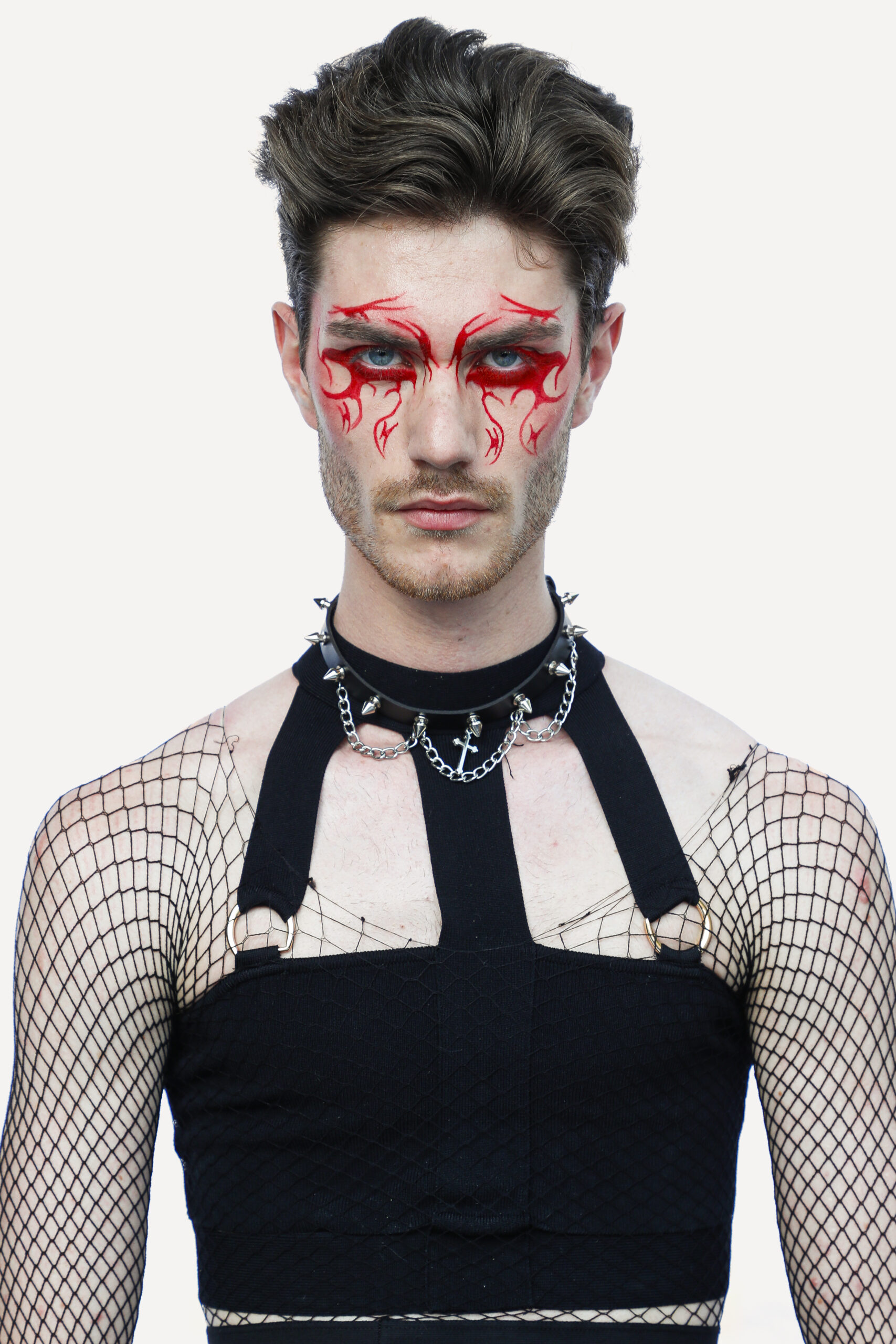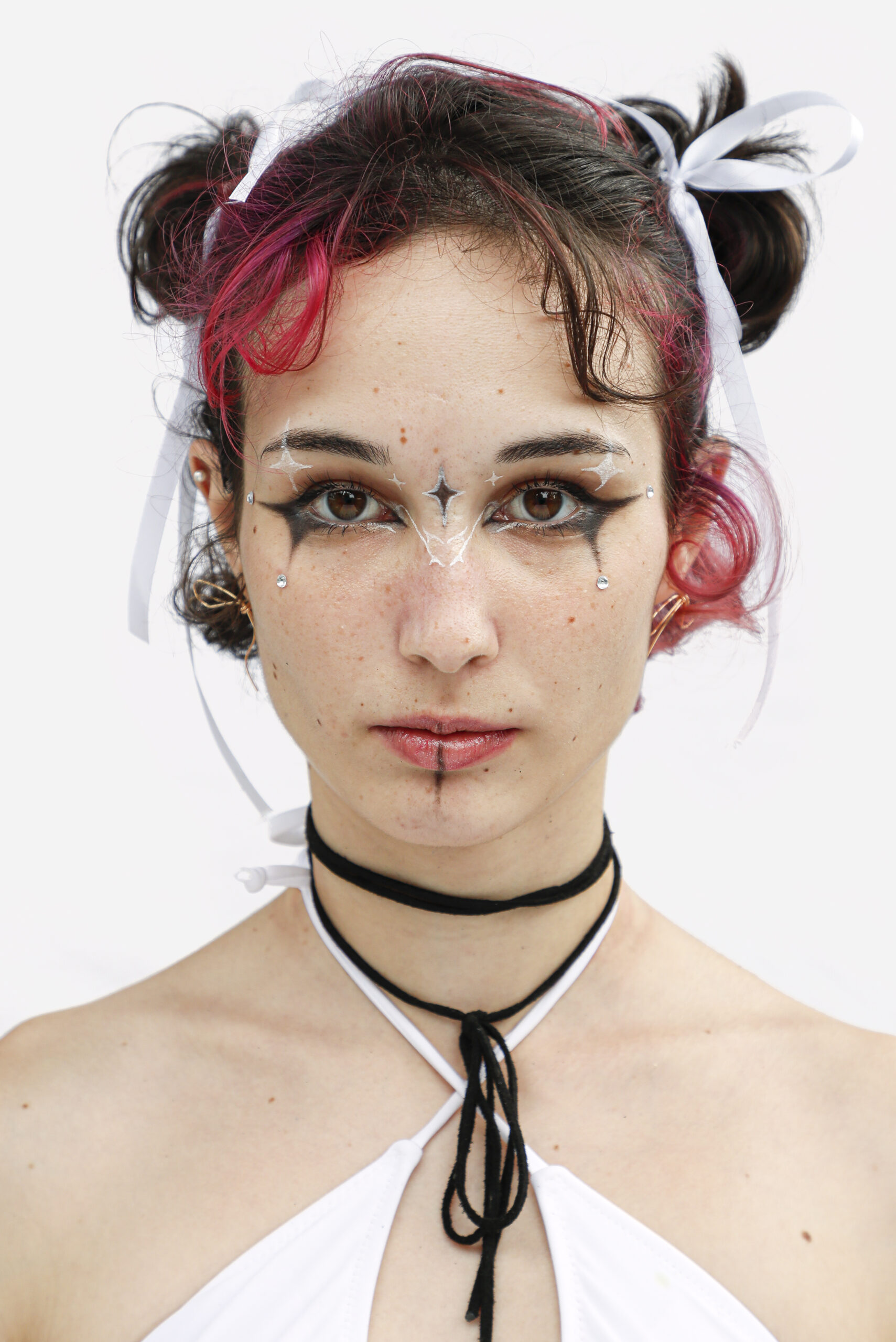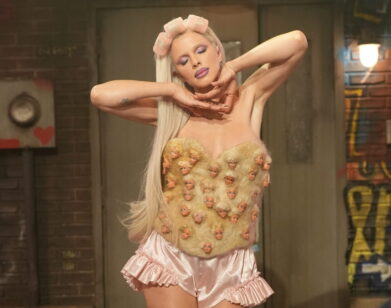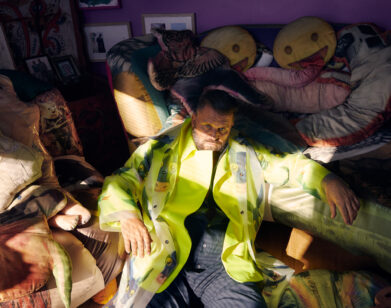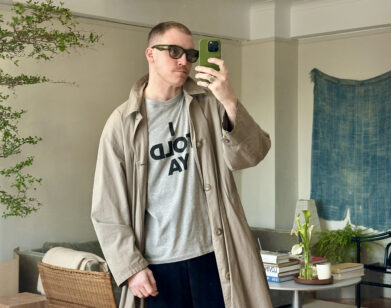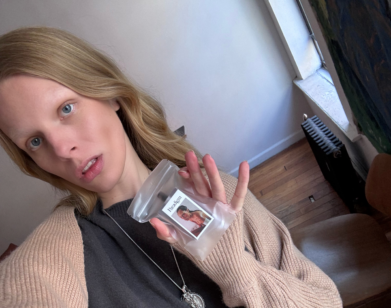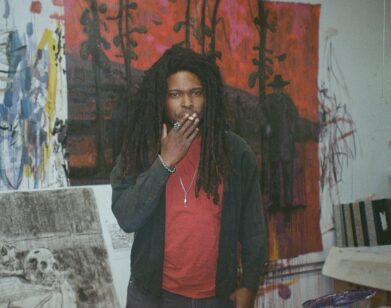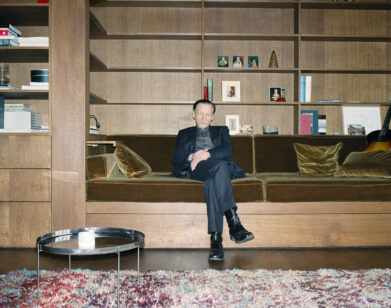ICON
Photographer Oliviero Toscani Takes His Camera to Torino’s FuturFestival
“I’m not looking for fake beauty,” says the celebrated and controversial photographer Oliviero Toscani after returning from Torino’s Kappa FuturFestival last month. The Italian artist, who celebrated his eightieth birthday last year, is best known for creating some of fashion’s most recognizable and divisive campaign images during his near-two decades at Benetton, addressing race, poverty, and the AIDs epidemic in his commercial work. Since leaving his position at the fashion house, Toscani has shifted his focus to the ongoing portrait series Razza Umana, the latest edition of which brought him to Italy’s famously exuberant electronic festival for its 10th annual edition. Alongside exclusive images from the project, fashion photojournalism’s enfant terrible laments the scourge of conformity, explains why he only photographs young people, and shares his definition of beauty.
———
MEKALA RAJAGOPAL: You’ve been doing this project since 2007. What was the original inspiration for Razza Umana?
OLIVIERO TOSCANI: No inspiration, just showing that we’re all different. The difference makes the art. I went around the world photographing people in the street. They all look at me in a certain way, and it’s an incredible document of humanity. I’ve been everywhere—South America, [Central] America, the United States, Europe.
RAJAGOPAL: So what drew you to this Kappa Festival?
TOSCANI: Kappa Festival is an opportunity to see the gathering of different young people from all over the world in three days. And it’s a great opportunity to find interesting faces in Torino.
RAJAGOPAL: What conversation do you want this project to spark?
TOSCANI: I’m not pretentious, and I’m not the pope, I just try to do my work with a certain kind of engagement. I don’t do it just for aesthetics. You have to use photography to witness your time. And that’s what I did all my life. At the end, of course, everything has got an aesthetic. But my first task is not looking for the aesthetic.
RAJAGOPAL: How do you decide who to photograph?
TOSCANI: I don’t decide. It’s destiny. I’m in the street, I put up a white background, one meter 50 by one meter 50. People pass by, I ask them if they want to be photographed, they say yes, and I take their picture. I take their name, when they’re born, and what they do.
RAJAGOPAL: Do you give people any direction when you photograph them?
TOSCANI: No, the other way around. I want them to look at me. They look at me deep in my camera, in my eye. And that’s the secret of the work. Those people are studying you, so you feel somehow through those faces, you understand the country, the political conditions. It’s not a complacent, self-indulging work. I’m not looking for fake beauty. I’m looking for real beauty, reality.
RAJAGOPAL: How do you define beauty?
TOSCANI: Nothing is fake. It’s not artificial, like most photography. These are people who have never been photographed, you know? We put them in front of the camera and they look at you with a deepness that people who get photographed a lot lose. They lose their soul. These people are neglected somehow—nobody wants to study them, nobody ever asked them to be photographed.
RAJAGOPAL: What would you say have been your biggest influences on this project?
TOSCANI: Through the years, other photographers have done something [similar]. Not exactly the same, but the principle is there. There is a German photographer called August Sander who photographed the German people in the post-Second World War. It’s called Menschen des 20 Jahrhunderts, the People of the 20th Century, which is very, very important to me as a work.
RAJAGOPAL: You’ve probably photographed hundreds if not thousands of people. Is there something common in all of them?
TOSCANI: It seems repetitive, but it’s not at all. Every time, I learn something more, looking through those people’s eyes one by one. I don’t even have to speak to them. People don’t look each other in the eyes. We are afraid. So by doing that, I’m learning a lot about humanity, about relationships, about morality, about ethics. You can document a country by taking pictures of the landscape, but you can also photograph a country by taking pictures of the people who live there. Those [photographs] are much deeper than the physical landscape, because in them you can see the tension in a society.
RAJAGOPAL: What would you say has been the most challenging part of this project so far?
TOSCANI: It’s not really challenging. It’s more like being an explorer. Going around the world to little villages from a big town and standing there in the corner, nobody knows you and everybody is the same. They pass by and that’s it.
RAJAGOPAL: What does the future hold with this project?
TOSCANI: I don’t even want to think about it, because it’s endless. It can go forever. But it’s funny, because when I look at the pictures taken in 2007 and pictures taken now, there isn’t much difference in people. You see social evolution. Nothing else. When something is modern, it stays modern forever. It’s got nothing to do with time.
RAJAGOPAL: Have you seen any continuous trends?
TOSCANI: That depends on the country. They’re more or less dependent on the TV program of the moment.
RAJAGOPAL: So it’s all temporary.
TOSCANI: Yes. Well, the fashion in the street is the real fashion. I like FuturFestival because young people show you that. I don’t photograph children, and I don’t photograph very old people because they’re not the future. They don’t teach me. I’m an old man, that’s why I say that.
RAJAGOPAL: What do you think the people at FuturFestival taught you?
TOSCANI: There is a common feeling throughout the young people. A common hope, vision. Speranza, even though they come from different parts of the world. Young people do realize that we don’t live in a civilized society. They live in a transition. There is a bit of sadness throughout humanity. Human beings are not really happy people now. We have trouble with the economy, money, and careers. When will we realize that all that is bullshit? We give away our lives to conform because we have to pay the bills.
RAJAGOPAL: Do you think young people are now less willing to conform?
TOSCANI: No, but those kinds of people are rare. Of course, they will be conforming one day, that’s why they are expressing themselves physically and aesthetically. But in the end, they have to give up because society kills us. Young people have to bring a sense of real subversion to the world and the music helps them to think in that way. But I think we are living in a moment of maximum conformity. Everybody who doesn’t conform is not accepted by society. We’ve never been like that. Everything looks the same. People dress the same. They talk the same. They all like the same shitty music. Mamma mia. And the cars are all the same. Very few have the courage to go against the system.
RAJAGOPAL: What kind of world do you want young people to create?
TOSCANI: I think that we should have the courage to create our life instead of consuming it. Even when we don’t need to, we become slaves to that system. That’s the easiest way to conform.
RAJAGOPAL: So Razza Umana is really a life mission?
TOSCANI: As long as I’m alive, I wish to do it. It’s an incredible exercise for me.
RAJAGOPAL: Amazing. Thanks so much for joining me.
TOSCANI: Pleasure. Ciao-ciao.

